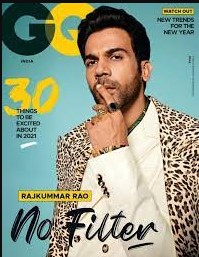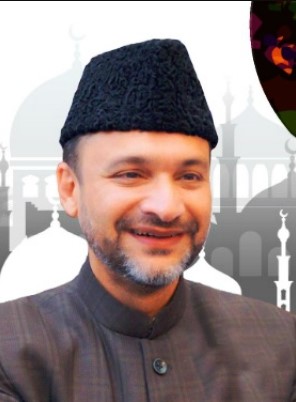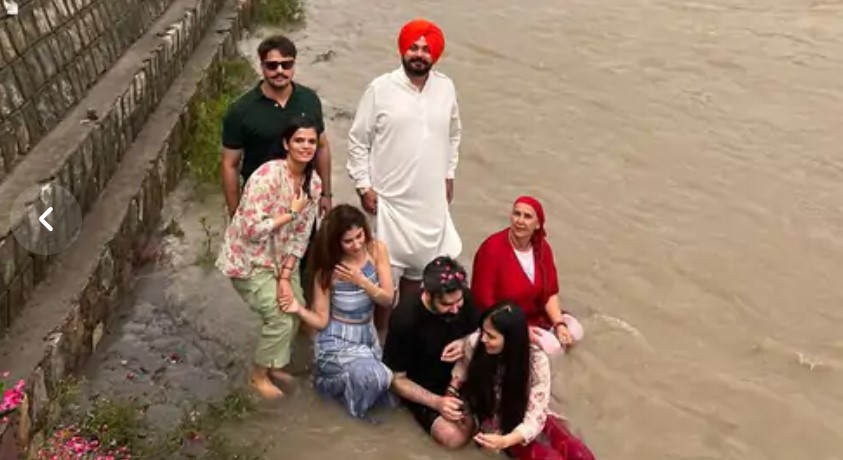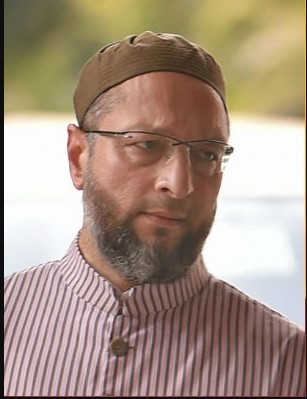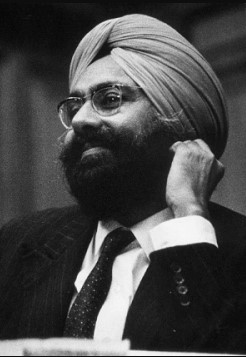
Khushwant Singh was a novelist, politician, journalist, and lawyer from India. He was born in Hadali, Punjab, which is now part of Pakistan, on February 2, 1915.
He is noted for his wit and passion for poetry. He was a man of many talents who devoted himself with equal fervor and dedication to the Indian judicial system, journalism, and Indian literature. He started his professional career as a lawyer in Lahore High Court and worked for 8 years, before joining the Indian Foreign Service. He continued in the service for a few years before embarking on a career in journalism and mass communication. In 1951, he was hired as a journalist by All India Radio, and in 1956, he was transferred to UNESCO's Department of Mass Communications in Paris.
He also worked as an editor for a variety of well-known periodicals and magazines, including 'The Hindustan Times,' 'The National Herald,' and 'The Illustrated Weekly of India.' Singh was more recognized for his writing, with works such as 'Train to Pakistan' (1956), 'Delhi: A Novel' (1990), 'The Company of Women' (1999), 'Truth, Love, and a Little Malice' (2002), 'The Good, the Bad, and the Ridiculous' (2013), and others. Singh's weekly column, "With Malice Towards One and All," has been one of the most widely read in India, appearing in The Telegraph and several other newspapers. The weekly piece, bold and daring, endearingly enigmatic, was a breath of new air in an otherwise dormant world of desi English journalism. He was awarded the Padma Bhushan for his great contribution to Indian society and culture, although he refused to accept it since he detested Operation Blue Star.
Personal and Family life
Sir Sobha Singh, a major civil contractor in Lutyens Delhi, was his father. Lady Varyam Kaur was his mother's name. He has a son, Rahul Singh, and a daughter, Mala. Kanwal Malik, who was Singh's junior in Delhi Modern School and with whom he reconnected while he was studying law at King's College London went to become his wife later. Amrita Singh, a well-known Indian actress, is his niece (daughter of his brother Daljit Singh's son, Shavinder Singh) whereas film actress, Tisca Chopra is his grandniece.
Education
Singh attended New Delhi's Modern School for his studies. Between 1930 and 1932, he studied Intermediate of Arts from St. Stephen's College in Delhi. He completed his BA from Government College, Lahore in 1934. To pursue law, he went to King's College in London and in 1938, he received his LL.B. from the University of London.
Professional Career
In 1938, Singh began his legal practice as a professional lawyer. His heart was focused on working with and contributing to India's judicial system. For the past eight years, he has dedicatedly laboured and given his all at the Lahore Court. After India's independence in 1947, he joined the Indian Foreign Service. He started his career with IFS as an Information Officer for the Government of India in Toronto, Canada. He then went on to work as a Press Attaché and Public Officer in the Indian High Commissions in London and Ottawa. In 1951, he left the IFS to work for All India Radio as a journalist. Between 1954 and 1956, he was engaged in working at the UNESCO Department of Mass Communications in Paris. In 1956, he founded and began working as an editor for 'Yojana,' an Indian government publication. The readership of the weekly magazine 'The Illustrated Weekly' climbed from 65,000 to 400000 during his nine-year term as editor from 1969 to 1978. From 1980 to 1983, he worked as the editor of the publication 'Hindustan Times.' After his term as editor ended, he continued writing a highly syndicated column for the newspaper called "With Malice Towards One and All." Singh's works have made him famous all over the world, despite his involvement in a variety of fields, including the Indian judicial system, Indian Foreign Services, Indian media, editorial writing, and fiction writing. His work, 'A History of the Sikhs,' is largely considered to be the most authentic source of Sikh history. "Santa Singh and Banta Singh" banters were also created by Khushwant Singh, who popularised them through his best-selling books and blogs.
Political Career
Singh served in the Rajya Sabha, the Indian parliament's upper house, from 1980 to 1986. He was an outspoken supporter of the Congress Party, particularly during Indira Gandhi's tenure. When Indira Gandhi declared a state of national emergency, he openly backed it and was mocked as an "establishment liberal". The anti-Sikh riots that followed Indira Gandhi's assassination, in which senior Congress politicians are claimed to have been implicated, shattered Singh's faith in the Indian political system but, he remained steadfastly optimistic in the promise of Indian democracy and worked through the Citizen's Justice Committee, which was founded by H. S. Phoolka, a senior counsel in the Delhi High Court. At a time when India didn't want to offend Arab countries where thousands of Indians worked, Singh was a proponent of improved diplomatic relations with Israel. In the 1970s, he visited Israel and was impressed by its progress.
Khushwant Singh had a habit of rarely changing his mind on people. He had also strongly supported former Prime Minister Dr. Manmohan Singh during his tenure, whom he referred to as "India's most honest man." He even went after Manmohan Singh's opponents, and unexpectedly, Manmohan Singh was the first political leader to express his condolences.
Awards and Honors
During his lifetime, Khushwant Singh received numerous awards The Padma Bhushan (which he returned in 1984 in protest against Operation Blue Star), the Punjab Rattan Award (2006), the Padma Vibhushan (2007), the Sahitya Academy Fellowship Award (2010), the Tata Literature Live Award (2013), and the Fellowship of King's College, London (2014) among them.
In 1996, he was honored with a grant from the Rockefeller Foundation.
Sulabh International Social Service Organization awarded him the "Honest Man of the Year Award" in July 2000 for his boldness and integrity in his "brilliant incisive writing".
Panjab University bestowed upon him an honorary D. Litt in 2011.
Akhilesh Yadav, Chief Minister of Uttar Pradesh, presented him with the All-India Minorities Forum Annual Fellowship Award in 2012.
He was also given the Order of Nishaan-e-Khalsa.
Controversies in his life
Khushwant Singh
A man's life is usually filled with tales. Some are well-known, while others are unknown. In the same way, there are many rumours and half-truths that cause controversy in someone's life. This was also true of Khushwant Singh, a well-known journalist and novelist. It is alleged that he was frequently criticized for his publications, jokes, and political views throughout his lifetime.

